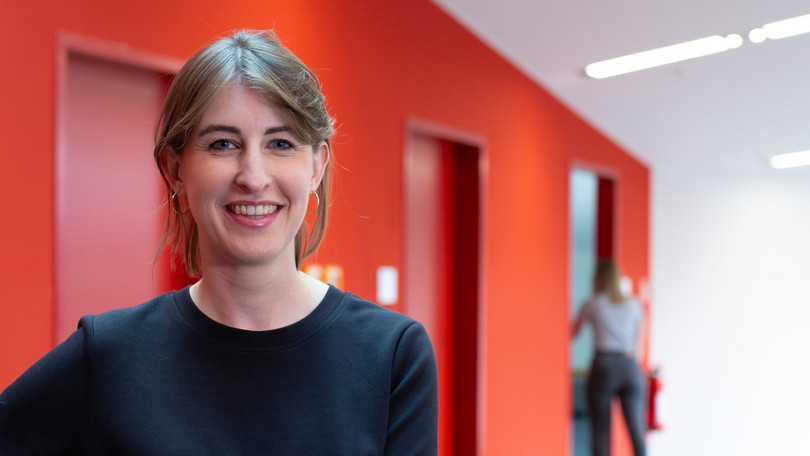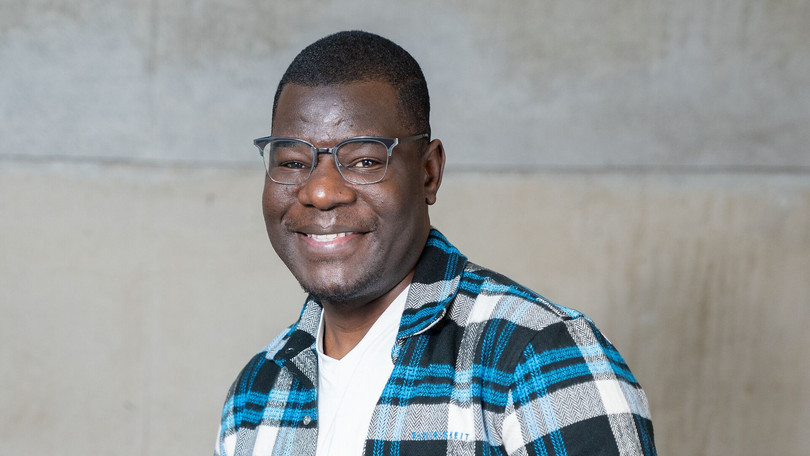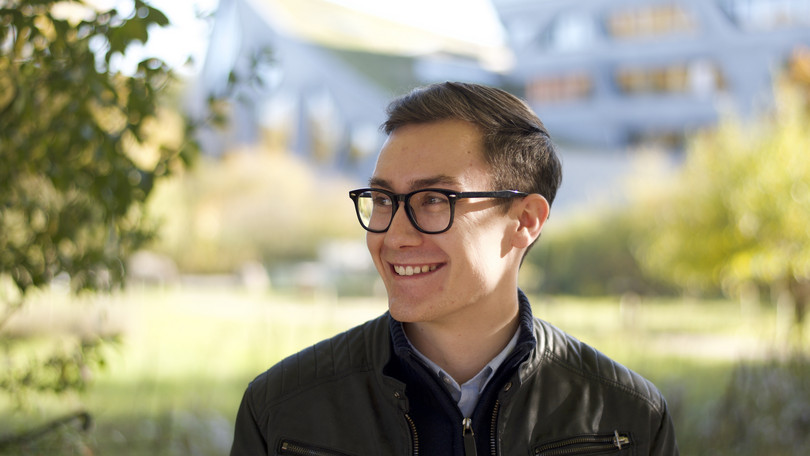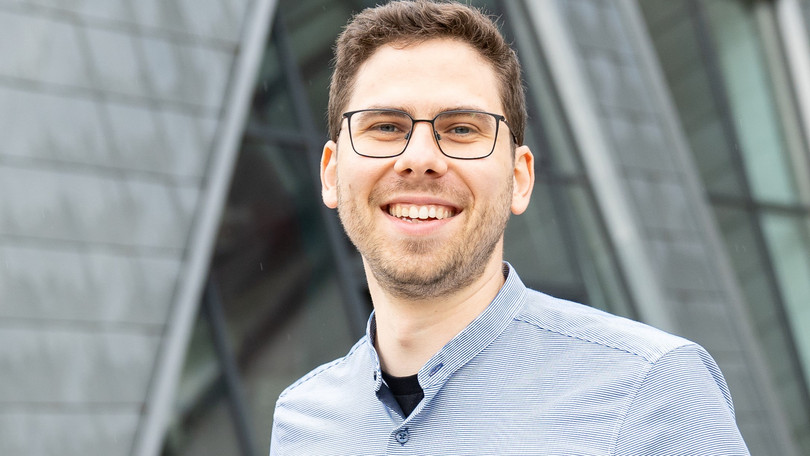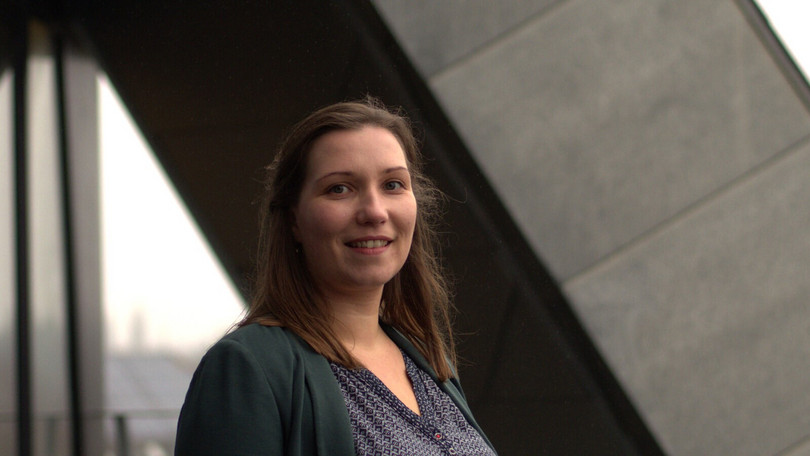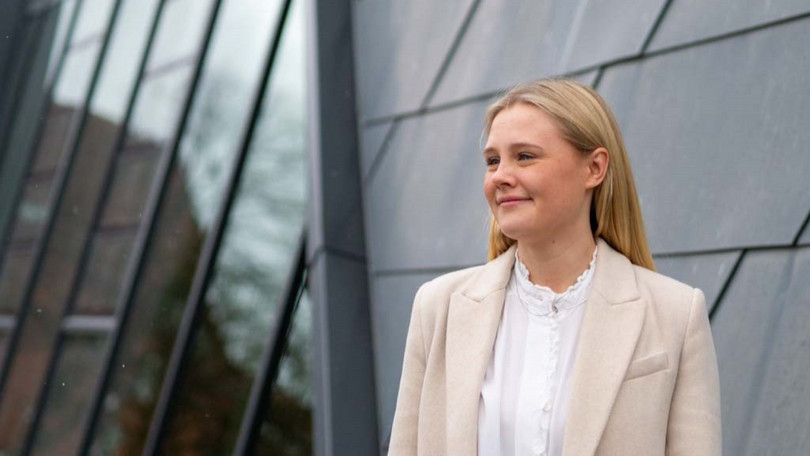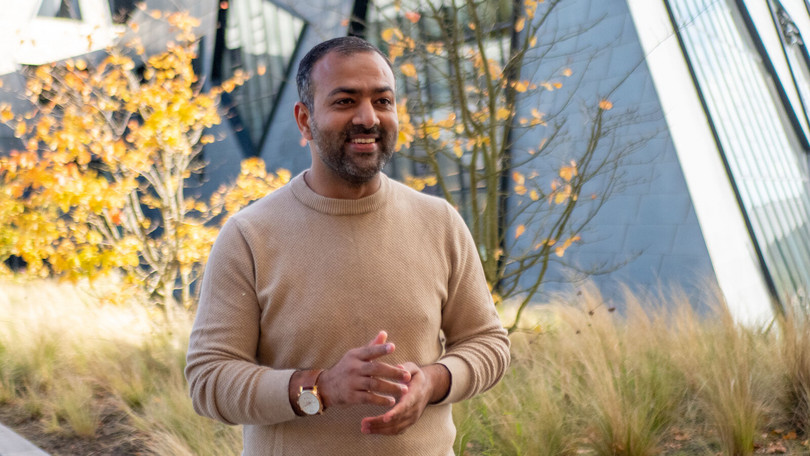Experiences of Doctoral Candidates
When and how does the decision for a doctorate actually come about?
How does the doctorate's world differ from master's study times? And what is special about the doctorate at Leuphana?
The reports on the experiences of doctoral candidates on is website provide information!
Further testimonials from doctoral candidates on their career stages can also be found here in the podcast "Karriere leupht".
Anna Bobe / Research Group Social Pedagogy in Diverse Societies
13.09.2024 Anna Bobe conducts research on teaching in vocational training in social pedagogy. Learn more about her project and how the Leuphana doctoral research group supports her.
 ©Bobe
©Bobe
You are researching teaching in vocational training in social pedagogy. What exactly do we not understand and why do you want to change this?
Early childhood education is an important first foundation for further educational pathways. Teachers of social pedagogy vocational education specialists who work in child daycare centres, among other places. However, in order to enable the highest possible degree of professionalisation in this area, we still know far too little about how teaching should be designed in order to learn social pedagogical action. Although didactic approaches have existed since the 1980s, there is still a lack of empirical research on how teachers actually teach and what they orientate themselves towards (didactically and methodologically).
How do you conduct your research?
In my view, teaching is a highly routinised (everyday) action by teachers. This makes it difficult to explain to others how and why they acted in this way. Therefore, I observed lessons in a participatory manner in order to be able to ask questions about the (observed) actions on this basis. At the same time, I was able to mirror my own observations to the teachers and, in addition to their own statements, observe how these were reflected in their actions or whether there were deviations.
How would you describe the part of the Leuphana Doctoral Research Group for your dissertation project?
Through the events at the programme, especially the reflection and interpretation workshop and the colloquia, I was able to take my first steps in academia and (learn to) present myself and my topic. The interdisciplinarity enabled me to look at my project from other perspectives, to find new ways or solutions to challenges or to reinforce my previous approach. For me as a research assistant at the university, the doctoral research group also opens up a contact space with external doctoral candidates and scholarship holders. This exchange is very beneficial for everyone.
What advice can you give to people who want to pursue a doctorate?
Of course, there is a lot of pressure, if only because of the professional framework and funding. From my perspective, it is nevertheless important to give yourself time to develop and find your own path in order to maintain the joy of research. At the same time, networking, self-organisation and creative breaks are key.
Laura Wenzel / Research Group Social Pedagogy in Diverse Societies
13.09.2024 Laura Wenzel finished her PhD on refugee family research this summer. Read how she managed the challenges of a doctorate and balancing academia and family life.
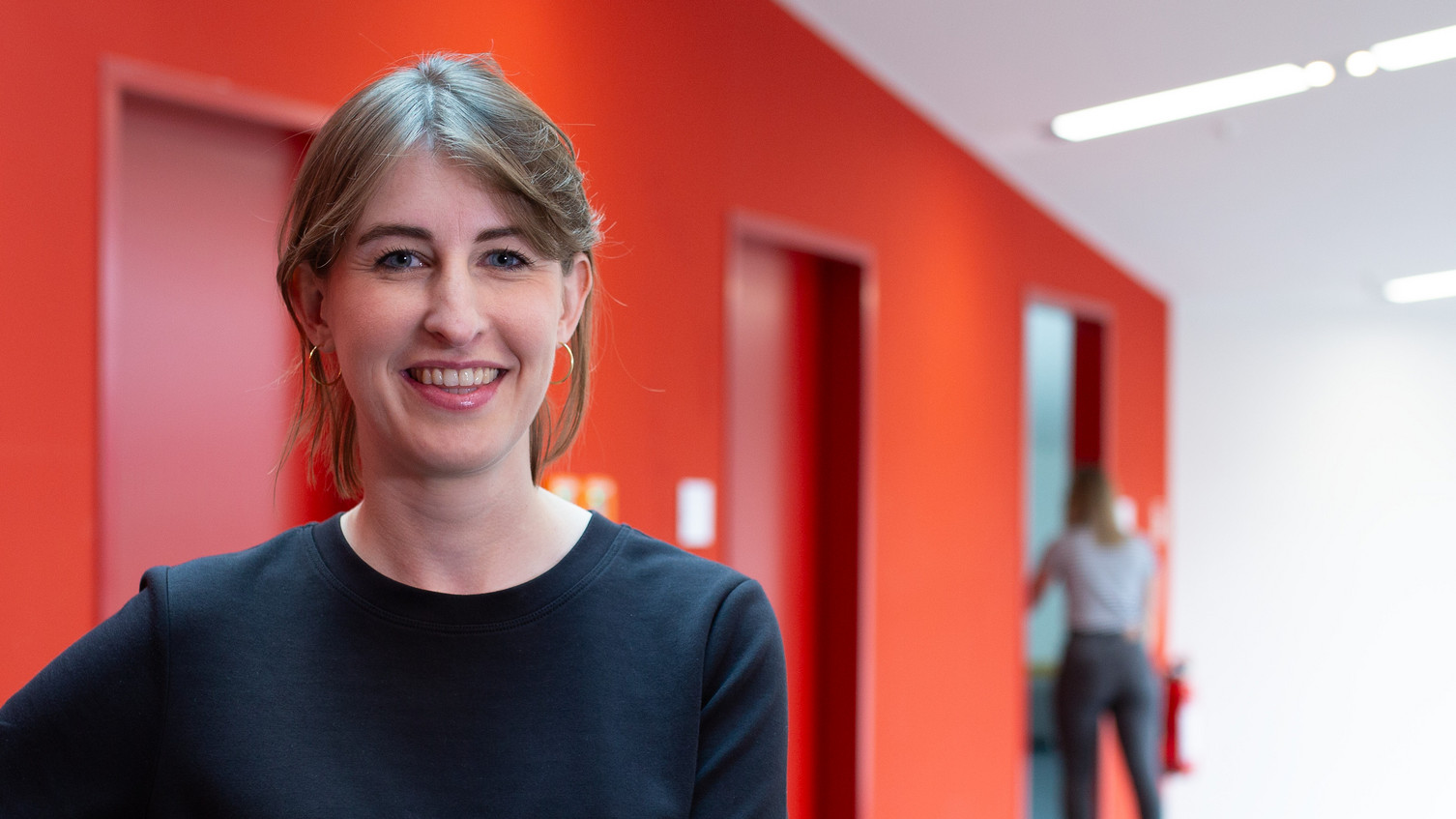 ©Leuphana/Tengo Tabatadze
©Leuphana/Tengo Tabatadze
You recently finished your PhD, time for a look back. How did you get to Leuphana?
Coming to Leuphana was topic-driven: I completed my Master's degree in Sociology and Social Research and then worked at a non-university research institute on transnational families in the context of flight. The project ‘Integration through trust’, which focussed on refugee families and their access to early education services, immediately appealed to me. On the one hand, the thematic links to my previous work and, on the other, the combination of basic research, practical relevance, and transfer.
It was very helpful for me to write my doctorate in the interdisciplinary project and to find my place as a sociologist in socio-educational work and research contexts in the very appreciative and interdisciplinary doctoral programme.
Doing a doctorate requires stamina. What challenges did you face?
The start of the data collection of my research coincided with the first coronavirus lockdown. That was a shock at first and we had to be very flexible so that we could continue our research. I am very glad that we quickly tried new ways at the university and continued the doctoral courses and the doctoral research group in online mode. That meant important support in getting through this challenging time.
The Leuphana mentoring programme was also very important for me. I got to know many women* doing their doctorates from other disciplines and benefited greatly from the exchange - also in relation to my greatest personal challenge: I had my daughter during my doctorate. Doing a doctorate with a child presented me with completely different questions, e.g. with regard to my time and resource management. Unfortunately, it is often not easy to reconcile parenthood with qualification projects, especially in academia. I had really positive experiences here and received a lot of support from my first supervisor, the doctoral research group, and my colleagues.
You have submitted a cumulative dissertation, what is special about this approach?
A cumulative dissertation, in which several thematically related scientific articles are developed, requires a high degree of organisation, as you parallelly do research, writing and management of the publication process. It can take a long time for the articles to be published in scientific journals. At the same time, early publication increases the visibility of your research. I was able to gain a lot of experience during my doctorate, e.g. in relation to peer review processes and collaborative writing processes, which is very helpful for me now. Gladly, I didn't have to manage all of this alone, but received support on ‘academic writing’ in the doctoral programme and the continuous feedback from my doctoral supervisors and colleagues. At the same time, I had enough freedom to find my own path and style.
Congratulations on your PhD. What's next for you?
Thank you! First of all, I take a deep breath. And, what I've learnt at numerous scientific conferences: you don't have to have an answer to every question straight away, you can also think out loud sometimes. In a figurative sense, this also applies to my current phase. I am currently sharing a position as a research assistant in tandem with a colleague. At the same time, I'm starting to develop ideas for further research proposals by exchanging thoughts a lot and attending conferences. I'm also doing further training to become a systemic counsellor so that I can open up other fields of work if necessary.
Lloyd Kwambana / Research Group Social Pedagogy in Diverse Societies
12.09.2024 Funded by a Scholarship of the Katholischer Akademischer Ausländer-Dienst Lloyd Kwambana recently picked up his doctoral courses at leuphana. Read about his research interest and his experience on enrolling at Leuphana.
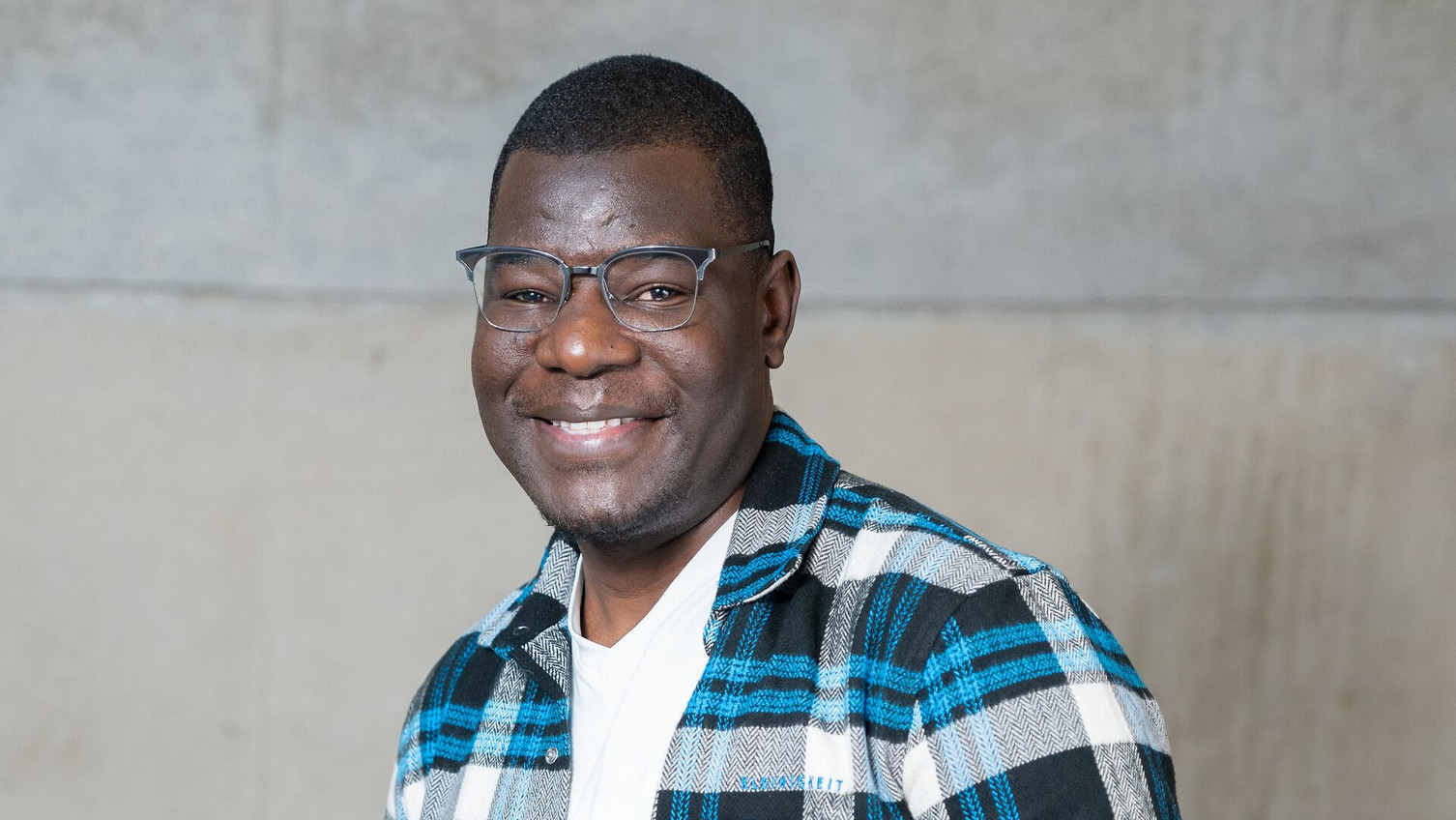 ©Leuphana/Teresa Halbreiter
©Leuphana/Teresa Halbreiter
What is your research project about?
I analyse programs critical for the realisation and respect of children’s rights protecting them from abuse, exploitation, and violence. I had already worked on that topic in my master’s thesis which focused on the inclusion of children in the policy formulation process that determine their growth and development. The voice of a child is critical when developing policies that concern their welfare. Participation of children promotes sustainability and effectiveness of interventions that facilitate a safe space for children.
My research is also shaped through my personal experience. Losing both my parents and growing up under my grandmother’s care shaped my interests and passion to advocate for support for orphans and vulnerable children.
Your Master’s thesis won the “Child Protection and Gender Trophy Award” at Women’s University of Africa. Then, you received a PhD scholarship through the KAAD. Why did you choose to apply at Leuphana University?
I chose Leuphana because of its reputation and critical relevance to my PhD study. I conducted a university mapping analysis and noticed that Leuphana University was the institution that would make me realise my career goals. Leuphana’s commitment, values and integrity were at the core of my consideration.
Within the doctoral research group “Social Pedagogy in Diverse Societies” I found the mentors I was looking for, thus I shared my application package with Prof. Dr. Lars Alberth. Although I am just getting started at Leuphana, I already received detailed feedback. Particularly, I appreciate the supervision agreement, which lays out a solid path for my research. The professionalism and supportive energy from Leuphana makes me enjoy my study and learn at the same time.
What is your experience as an international graduate applying at Leuphana, what advice can you give to others?
It helps to take your time to analyse which research group suits your interests best. After identifying my potential supervisor, I put a lot of work in my application package which included my research proposal, a motivational letter and information on my personal background.
After my application, I received support to plan my doctoral journey in a way which l believe every PhD candidate wishes for. Therefore, l give my informed advice to other candidates or applicants to consider Leuphana University as an academic hall-mark towards realising their academic goals.
What do you hope to achieve with your research ?
I hope to achieve the realisation of programs and interventions that protect and safeguard children from any form of abuse, violence, and exploitation. This includes participation of children in policy making processes concerning their welfare, developing a Child Protection Framework and implementing it. In the future, l see myself actively participating and contributing to programs around the welfare of children, participating in my doctoral research group and mobilising resources towards sustainable support for the growth and development of children.
Niklas Werthschulte / Doctoral Research Group Management, Accounting & Finance
2024-08-19 The 25-year-old consultant studied Business Administration at Leuphana College, completed the ‘Management & Sustainable Accounting and Finance’ Master's programme at the Graduate School and is now doing his doctorate there while working. For the Stralsund native, commuting between academia and practice is a stroke of luck: ‘My employer RSM Ebner Stolz, Leuphana and I all benefit from this interlinking.’
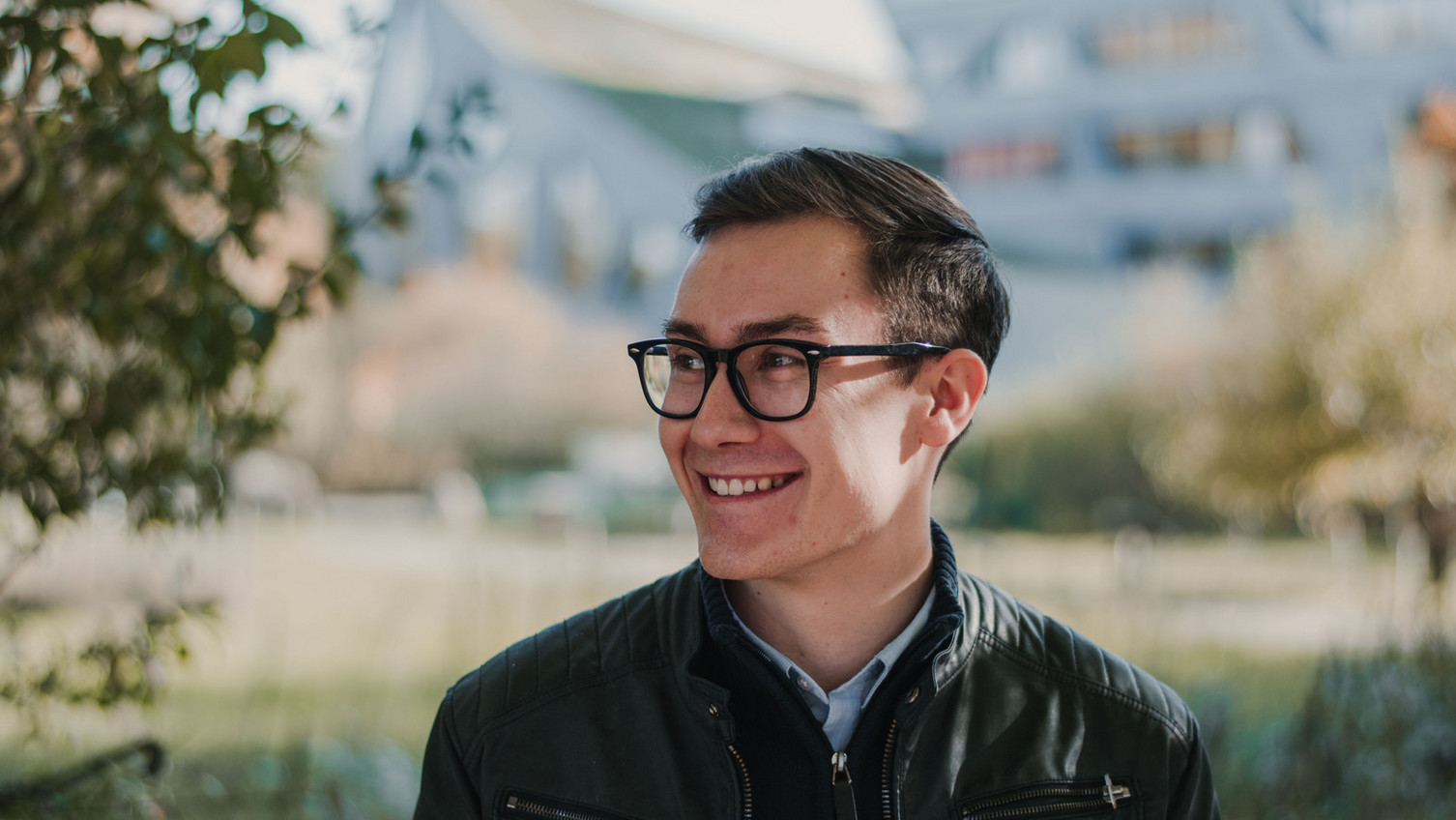 ©Leuphana, Marvin Sokolis
©Leuphana, Marvin Sokolis
The topic of ‘sustainability reporting’ runs like a common thread through Niklas Werthschulte's studies and doctorate. In his bachelor's thesis, he already focussed on the effects of companies' CO2 performance on their financial performance. In his empirical work, he found: ‘The capital market penalises companies that do not act sustainably. Investors see more risks there.’ Niklas Werthschulte was honoured by the Leuphana Chair of Accounting, Auditing & Corporate Governance for his achievement in his final thesis.
This was a great motivation for the then recent Bachelor's graduate: ‘I realised that statistical work and academic writing suited me. That's why I decided early on to pursue a doctorate,’ reports Niklas Werthschulte. He stayed on course and completed the Master's programme in Management & Sustainable Accounting and Finance at the Graduate School: ‘I focussed my seminars, assignments and Master's thesis thematically on sustainability reporting,’ reports the doctoral student. He has remained loyal to his supervisor from his Bachelor's and Master's theses: Niklas Werthschulte is now also doing his doctorate under Prof Dr Patrick Velte, Professor of Business Administration, in particular Accounting, Auditing & Corporate Governance.
The doctoral student sees continuity as a major advantage: ‘I know the literature and have already applied many of the quantitative methods I am now using during my studies.’ A great help for the tightly scheduled doctoral programme: Niklas Werthschulte is doing his doctorate while working. He spends half a year at university and half a year at the auditing firm RSM Ebner Stolz. As a consultant in a young team, he supports companies in the preparation of sustainability reports and the expansion of the department for sustainability reporting and the auditing of sustainability reports. ‘A new EU directive now also requires certain large SMEs that are not capital market-orientated to report. The topic is becoming increasingly relevant and is politically explosive because more than 15,000 companies in Germany are subject to reporting and auditing requirements and the legislation is being drawn up with a significant delay. There have been many changes in the regulatory process,’ explains Niklas Werthschulte. The doctoral student is writing his doctoral thesis on the effects of the new requirement. He is analysing sustainability reports from stock 600 companies such as Volkswagen and Linde. Niklas Werthschulte wants to find out how much influence stakeholders have on companies' sustainability reporting.
The doctorate is scheduled to last four years: ‘For me, the interlinking of science and professional practice is a huge advantage, as I deal with sustainability reporting both scientifically and practically. I'm not only familiar with the theoretical level, but also know about the practical problems our clients face.’ Niklas Werthschulte's employer also benefits from the Consultant's doctorate: ‘I bring my expert knowledge from research into the auditing company,’ explains Niklas Werthschulte. Conversely, his employer gives him space for his academic work: ‘The workload is tailored to me.’
The doctoral student is currently working on his first two publications. However, Niklas Werthschulte sees his doctoral thesis not only as an academic challenge, but also as a personal added value: ‘A doctorate promotes perseverance, willingness to work and analytical skills.’
Maximilian Wagenknecht // Doctoral research group Management, Accounting & Finance
Maximilian Wagenknecht is doing his doctorate at the School of Management and Technology on the topic of "Lean Startup Risk Management". Read his report on his experiences at Leuphana.
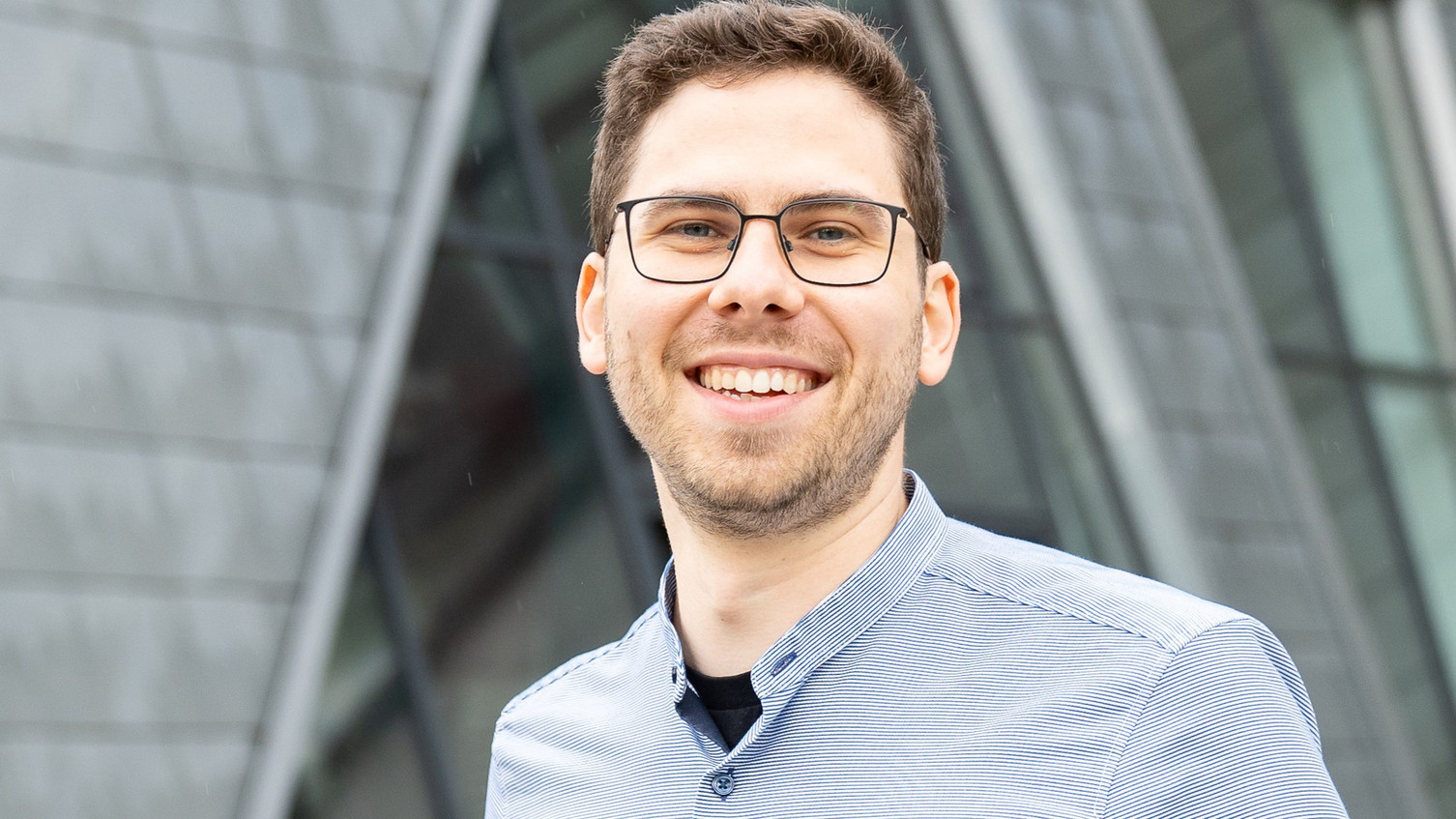 ©Leuphana/Teresa Halbreiter
©Leuphana/Teresa Halbreiter
What is your research about?
With my research, I want to gain a deeper understanding of how start-ups deal with opportunities and risks in different contexts. To this end, I look at both the internal perspective of startups and the external perspective, such as communication with investors or customers.
Due to the cumulative structure of my doctorate, I use various research methods and have just conducted qualitative interviews with founders. With this content, I am investigating, among other things, whether and how the topic of risk management is taken into account by start-ups. The question of the applicability of established risk management processes to startups and the resulting follow-up question of whether these processes need to be adapted for startups is particularly exciting.
Why did you decide to do a doctorate at Leuphana?
I already knew Leuphana from my Bachelor's degree. After completing my Master's degree in Bremen, Leuphana was on the shortlist for my doctorate right from the start. Fittingly, a position as a research assistant was advertised at the time. I am very happy about this opportunity because I can also gain teaching experience in this position.
I also perceive Leuphana as a start-up-orientated university that addresses the topic of business start-ups on an interdisciplinary level. This offers the opportunity for interdisciplinary dialogue and direct discussions with founders, which is of great value for my research.
The doctoral programme is a special offer at Leuphana - what are your experiences with it?
The disciplinary education in the respective faculties and the exchange in the doctoral programme provide a valuable basis for academic development. At the same time, the interdisciplinary content of the doctoral programme offers a wide range of perspectives on your own research topic.
From the cross-faculty contacts of the doctoral programme, I have also established a regular Zoom meeting together with other doctoral students. Especially if you are not working at the university at the same time, such an exchange offers a good opportunity to network.
You are the spokesperson for the doctoral student representatives. What tasks are associated with this elective office?
The doctoral student representatives consist of one doctoral student from each faculty. In this role, you have a say in the Faculty Council and a sympathetic ear for the concerns of doctoral students. In addition, the spokesperson for the doctoral representatives is a member of the university senate. This means that the concerns of doctoral candidates can also be raised in Leuphana's highest body.
There is also close cooperation with the doctoral student representative group, which also enriches the social aspects and life on campus. Through the diverse tasks in the doctoral student representation, you also get to know people throughout the university, such as professors and staff at the Graduate School. Such contacts are very valuable for personal and academic development.
Kristin Müller / Doctoral Research Group in Engineering
Kristin Müller started her doctorate at Leuphana in the winter semester 2022/23. Here she reports on her impressions from the Doctoral Research Group in Engineering.
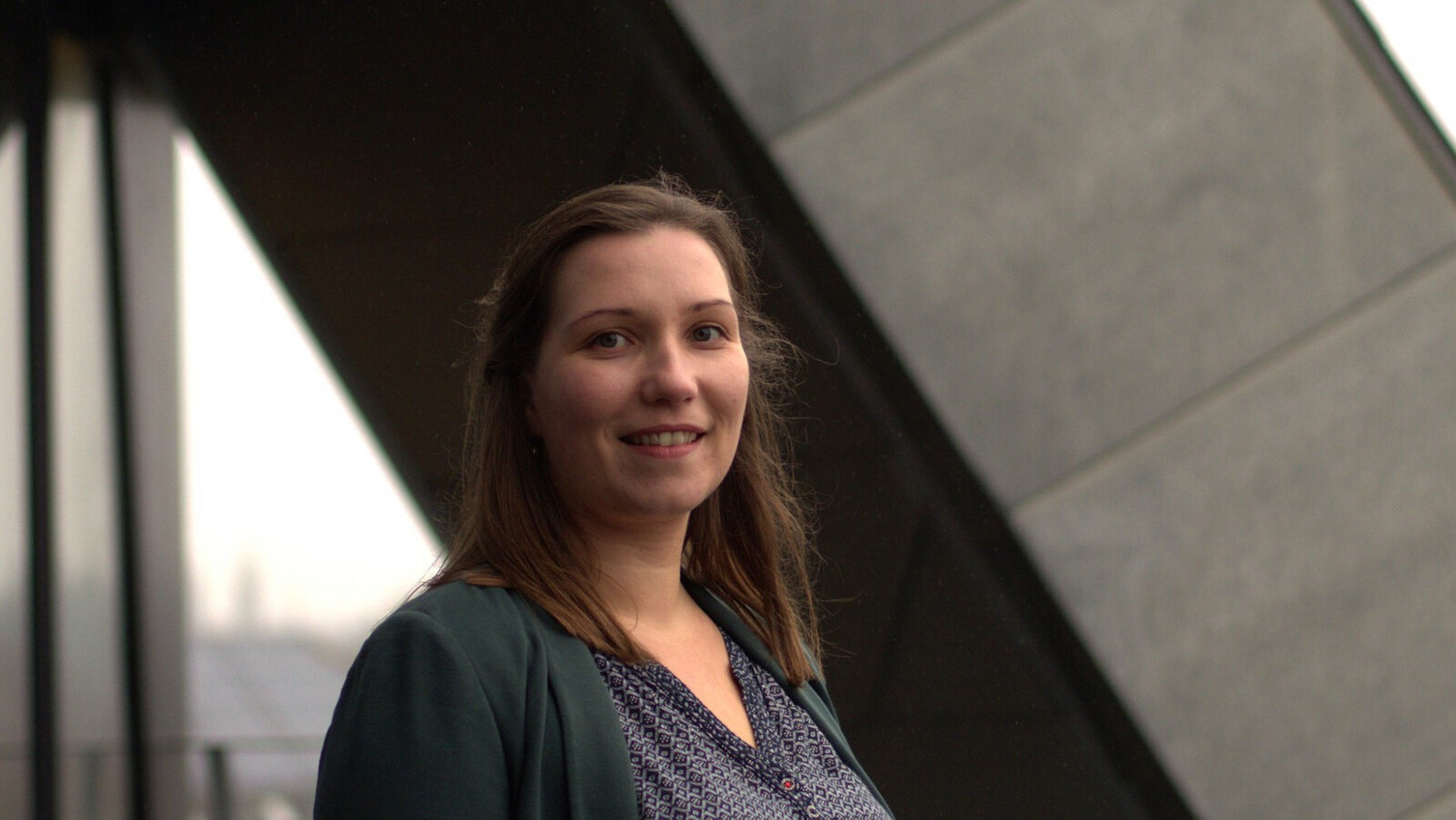 ©Leuphana/Ciara Charlotte Burgess
©Leuphana/Ciara Charlotte Burgess
Why did you decide to do a doctorate at Leuphana?
I decided to do a doctorate because I wanted to work scientifically and do research more freely than in my previous job in industry. I chose Leuphana because I expected a different way of thinking, especially when it came to sustainability. In addition, the field of engineering at Leuphana is still very young and in the process of being established, so I saw an opportunity here to be able to play a greater role in shaping it.
When did you first think about doing a doctorate?
During my Master's degree at RWTH Aachen University. At that time, however, I hadn't yet found "THE" topic for my doctorate. Besides, at that time I didn't want to study any more, but wanted to get to know the industrial world first. Today, the doctorate is less of a study for me and more of a normal job, which offers me a lot of freedom in research that is not available in industry. An industrial company naturally focuses on research for its own company or for its own products. At the university, the focus is not on the benefit of an individual company, but on advancing the state of the art as a whole. This creates a completely different social obligation for research and I can achieve a greater reach with my research results and bring about more change.
What is different now from when you did your Master's degree?
Everything - I completed my Master's degree at RWTH Aachen University in 2017 and then gained a lot of practical experience in industry. In the meantime, I have understood that today you can only really think freely about sustainability at university, as companies usually pursue their profitability as their main goal. Furthermore, I find it very enriching for my research to bring in my practical experience and to deal with it scientifically.
What do you benefit from most in the doctoral phase?
From the many opportunities on the one hand through the resulting freedom in research and on the other hand through the many opportunities for my personal development.
What would you say is different at Leuphana than at other universities?
I don't even know where to start... An important point for me is the supervision ratio in the field of engineering at Leuphana. In our team, we currently have 5 research assistants who are supervised by one professor. At other universities, one professor supervises around 100 doctoral candidates. So I get much closer supervision from my professor here than at other universities.
Another special feature of Leuphana in my eyes is that the topic of sustainability is a major focus of the university and is also focused on in the engineering sciences. Leuphana set this focus very early on and thus has a pioneering role and also a completely different self-image on this topic.
What expectations do you have of doctoral courses?
I expect to learn things that will support me in my doctorate and to meet people with whom I can critically question things.
Do you have plans to go abroad for a research stay?
I don't have any concrete plans yet, but I can imagine it very well. I already did an internship at a Spanish research institute during my Bachelor's degree. That was a great experience. So I think that another research stay abroad during my doctoral period would be very inspiring for me and my research.
Do you already have plans for what to do after your doctorate?
I have some ideas, but no concrete plans. There is a lot going on in the job market at the moment, so I want to remain flexible and not fixate on a concrete plan.
Should it be an academic career after the doctorate?
I can well imagine it. I definitely want to continue to do sustainable research and advance the field of sustainable production and rethink things in the process. I also want to reach as many people as possible with my work. That works very well in the working environment of a university.
Thank you very much for the interview!
Alina Knabbe / Doctoral Research Group Empirical Educational Research
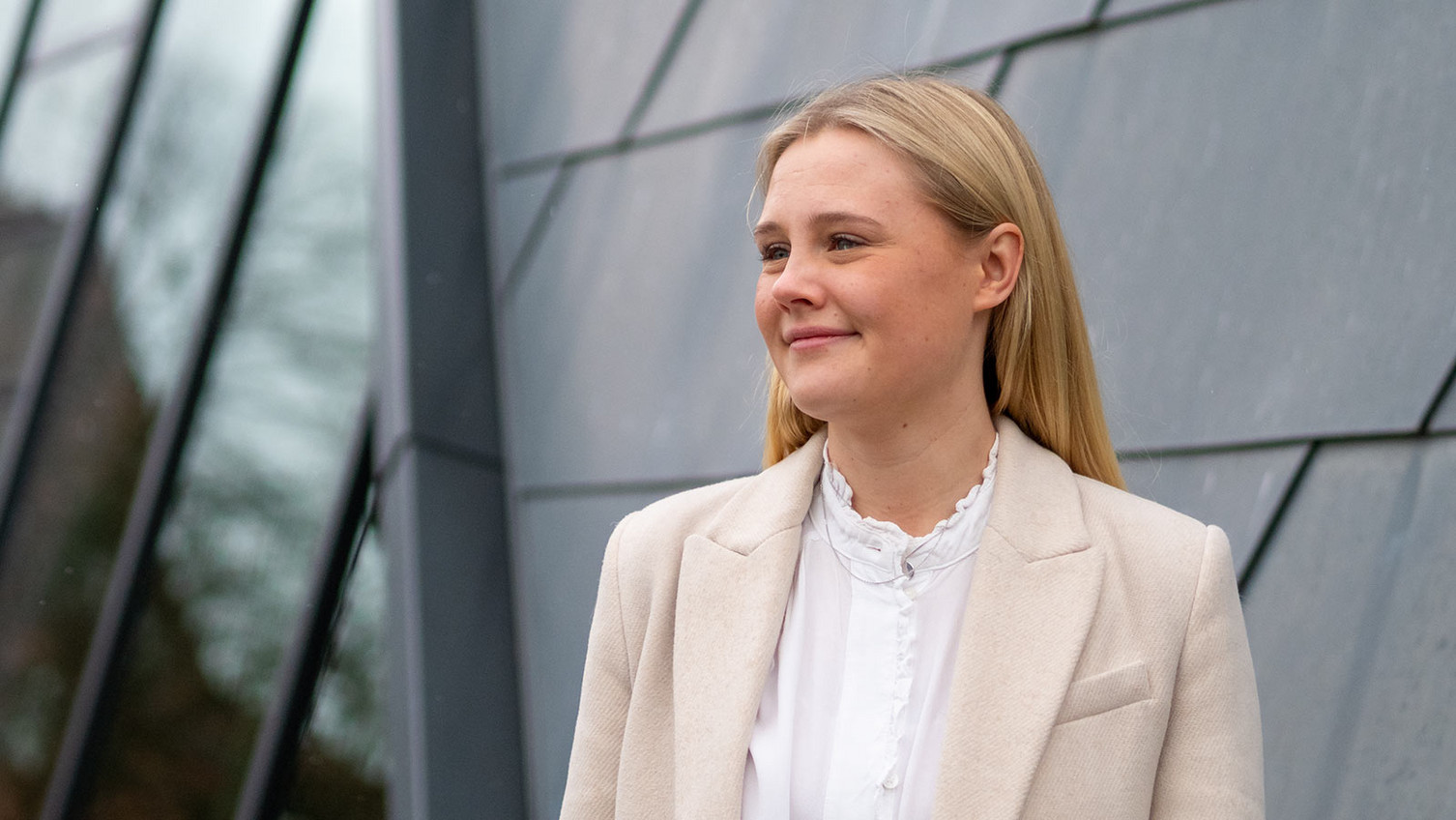 ©Leuphana/Ciara Charlotte Burgess
©Leuphana/Ciara Charlotte Burgess
Why did you decide to do a doctorate at Leuphana?
The doctorate was a good opportunity for me to combine two things: my interest in dealing with subject areas in more depth and over a longer period of time and to get to know other professional fields besides school. I chose Leuphana because I already knew many professors through my studies and work as a student assistant (SHK) at Leuphana, and Leuphana offers good support opportunities for doctoral candidates.
When did you first think about doing a doctorate?
During my work as a student assistant, I worked closely with doctoral candidates, so my inhibitions about entering academia diminished. Since I enjoyed the SHK job and writing and researching during my studies, the idea of doing a doctorate myself came up more and more often. While writing my Master's thesis, I pursued this idea and exchanged ideas with professors and other doctoral candidates in order to better inform myself about doctoral courses.
What is different about the doctorate compared to the Master study times?
As a doctoral candidate, you have more time for your own research. However, this also requires greater independence and organisation, which is why it is important to structure your time effectively and prioritise your own tasks. Compared to the Master's, you focus much more on a specific research area, which you work on in greater depth.
What do you benefit most from during the doctoral phase?
I benefit most from the scientific discourse with my colleagues and at conferences. Getting feedback on my own work is important for me and also a reassurance that I don't lose focus. At the same time, I learn to justify my own ideas and projects to other scientists and to stand up for them.
What would you say is different at Leuphana than at other universities?
Leuphana is committed to personal and academic (further) development with various offers from the Graduate School. In addition, Leuphana supports doctoral candidates financially with conferences, stays abroad, etc. through the Qualification Fund.
What do you benefit from most as a doctoral candidate?
I have improved my time management and task prioritisation skills. The doctoral phase also offers the opportunity to exchange ideas with other doctoral candidates from different disciplines and learn from their research areas, perspectives and experiences.
To whom would you recommend a doctorate in your subject?
People who are interested in working on topics in detail and enjoy learning about new topics (e.g. statistics). In general, you should have a certain degree of self-organisation and time management.
Do you already have plans for the future after your doctorate?
At the moment, I am exploring the different options after my doctorate and weighing up what I like best. One option for me is to do the preparatory service, complete my teacher training and gain practical experience in schools. To explore other options, I am participating in the Graduate School's career coaching and development programme and continuing my education in various areas.
Thank you very much for the interview!
Najamul Memon / Doctoral Research Group Sustainability Science
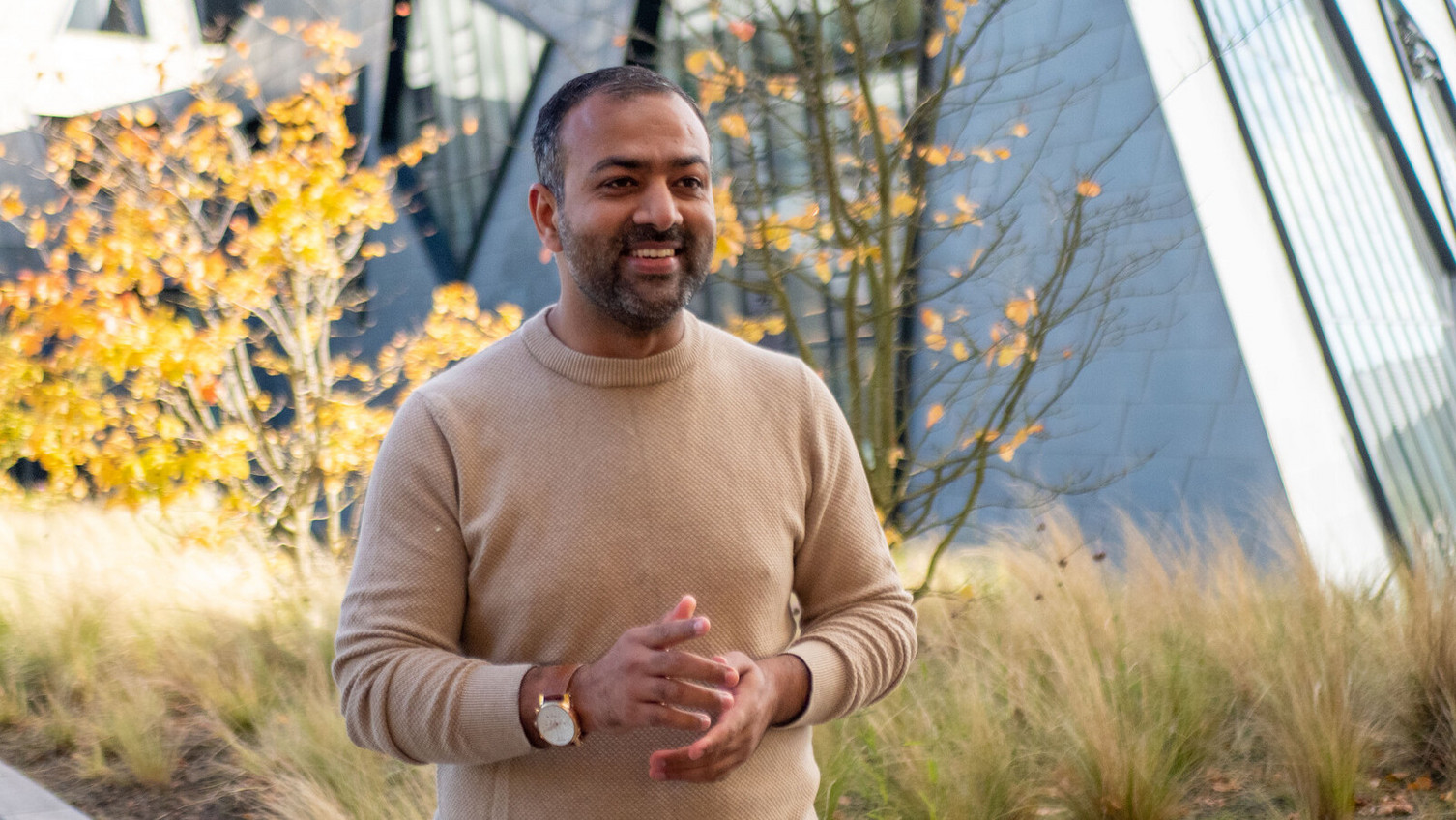 ©Leuphana/Ciara Charlotte Burgess
©Leuphana/Ciara Charlotte Burgess
Why did you decide to do a doctorate at Leuphana?
I choose a doctorate because of the academic freedom and my interest in the topics related to sustainable development goals and more specifically sustainable energy. I was lucky to be part of junior research group “SteuerBoard Energie” which further provided me avenues to merge my academic background of public policy with regulations and financing under the leadership of my supervisors here at the Institute of Sustainability Governance.
When did you first think about doing a doctorate?
Since years I carry a dream of helping humanity in getting their social issues resolved but never knew how. Thanks to DAAD for providing me an amazing opportunity to be part of Helmut-Schmidt Fellow for Public Policy and Good Governance where I got the chance to meet many internationals and we often used to discuss issues of governance in our respective countries. It was during my apprenticeship period at the University of Passau I found Sustainable Development Goals (SDGs) as the key indicators to resolve the development related issues across the globe. Germany being at the forefront of renewable energy inspired me to choose renewable energy (RE) as my focus area and that was one of the motivations to work on topics related to energy (SDG-7) and resolve the issues of energy poverty, energy access by guiding policy makers as well as inspiring youth in the sector. This might look very optimistic, so I am.
What is different now compared to the Master's times?
Being a doctoral candidate is different from being a master’s student. You need to be very focused and concretely deal with some topic in details. Being a doctoral candidate itself feels like you are the expert in the field (if not now may be in future). While working with your colleagues in a team you learn a lot about research, scientific communication, cross cutting themes and different methodologies of research and of course you read a lot.
What do you benefit from most during the doctoral phase?
During the doctoral studies you learn how to present your research problem and find different ways to resolve the jigsaw puzzle. Besides academics, you also get multiple opportunities to present your work, share your ideas and get feedback from the experts in different formats i.e., conferences, symposiums, and summer schools etc. All these platforms also provide you with ample opportunities to network and identify your scientific community.
What would you say is different at Leuphana than at other universities?
I am not sure about other universities, but one aspect that I like the most at Leuphana is “sustainability consciousness” be it in the form of different courses, degree programmes, in the architecture as well as the student community.
What do you expect from the doctorate at Leuphana?
I am expecting to develop my niche in the research and together with my mentors lead the discourse beyond academia.
Do you have plans to go abroad for a research stay? Have you spent a research period abroad?
I recently experienced the first ever research stay abroad when I visited beautiful northern parts of Pakistan. During my PhD field research, I met the off-grid rural communities and explored different forms of community energy models. I was amazed to see the way rural communities together with the help of local NGOs as well as multilateral donor agencies build and manage the hydroelectric power projects. At the same time, it hurts when you see those rural off-grid communities have not been focused through policies and regulatory framework.
Do you already know whether you want to pursue an academic career after your doctorate?
This is the question that I ask myself and still not sure whether I would stay in academia. But you never know, on the one hand I enjoy academic freedom and on the other hand I want to create a direct impact in the policy circles by joining some political elites or think tank(s), or it could be mix of academia and political leadership.
Thank you very much for the interview!


